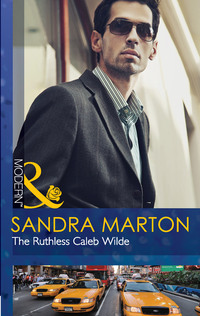
Полная версия
Ring Of Deception
Luke tried not to listen, but it was impossible. Besides, he wasn’t hearing anything he didn’t already know. The “Alexandra” Katherine Kinard was talking about was undoubtedly Alexandra Webber. McDowell had told him Forrester Square Day Care was run by three women: Alexandra Webber, Hannah Richards and the woman sitting at her desk, who was doing her best to get rid of him.
He could only hope she managed to pull it off.
Luke rose to his feet. The Kinard woman looked up inquiringly.
“Take your time,” Luke said politely. “I’ll just stroll around your office and try to get a feel for what the place is like.”
It took less than ten seconds to decide that what the place was like was the inside of a loony bin after the art therapist finished a session with the inmates.
Luke stood, transfixed, before a sheet of paper tacked to a beaverboard wall. The paper was covered with swirls and stripes of red, yellow and blue and was only one of what looked like a hundred similar sheets of paper.
Slowly, he walked the length of the wall. What were all these brushstrokes supposed to represent? That thing had to be a tree. And a dog . . . well, no. He’d never seen a blue dog with six legs. That had to be a house. A man, a woman, a child. And a bird in the sky . . . or was it an airplane?
Hell, he thought, and walked toward the window that looked out onto the Emerald City Jewelry Exchange, directly across the street. The floor space all around him was crowded with stacks of books and boxes.
The lady needed a good carpenter. Some shelves, some cabinets and cupboards—
“Detective?”
Luke swung around. Katherine Kinard was staring at him and trying to smile. She was a nice-looking woman, not his type at all, but he’d kiss her smack on the lips if it turned out she and her lawyer had enough clout to get him taken the hell out of here.
“Well, Detective, it looks as if you’re going to be working here for a while.”
Luke groaned. Kinard looked startled, and then she laughed.
“My feelings, exactly. Understand, it’s nothing personal.”
“The same here, Ms. Kinard.”
“Please, call me Katherine. If you’re going to be an aide here—”
“I have to admit, I was pulling for you and your attorney.”
Katherine sighed. “Seems they really did have a female detective lined up, but she came down with—”
“Appendicitis. I know.”
“Mr. Adler called your lieutenant while I was on the phone.” She pushed back her chair. “I guess we’ll just have to make the best of it. I’ve already had my partners, Hannah and Alexandra, relocate upstairs for as long as you’re here.” She waved a hand at the two vacated desks in the room. “They share this office with me, but we decided you’d be able to work better with fewer people around. They’ll be in and out from time to time, of course. Now, we thought that you could work with one of our teachers and a group of about ten children, and—What’s the matter?”
“I have a job to do, Katherine. I don’t know how much they told you . . . .”
“They told me nothing whatsoever. Police business, they said. That was it.” She cocked her head. “I don’t suppose you’d like to tell me more?”
“Sorry. All I can say is that my work here involves steady surveillance. I can’t possibly do what I’m here to do and work with ten kids at the same time.”
“Well, then, Detective, I don’t know—”
“Call me Luke. Nobody here must know I’m a cop.”
“Yes, but you just said—”
“I have an idea,” Luke said slowly. He jerked his head toward the window. “Were you planning on turning that area into something particular?”
“You mean, something instead of a disaster zone?” Katherine sighed. “Someday, when I have the time and the money, we’ll put in shelves and—”
“And cabinets and cupboards.” Luke nodded. An idea was slowly coming together in his mind. If he brought in some tools, some wood . . . “How’d you like that stuff built right now?”
“I’m afraid I don’t understand.”
“I wasn’t always a cop. There was a time I was pretty handy with a hammer and saw. Suppose I come in as a handyman instead of a teacher’s aide? That way, I can keep my attention where it’s supposed to be—and you won’t have to worry about me scaring the kiddies out of their skin.”
“Oh, I wasn’t . . . ” Katherine smiled. “Okay. Maybe I was a little concerned. And I have to admit, your idea makes sense, but how long will your assignment here last? Will it be long enough to complete shelves and cabinets?”
Luke grinned. “Sounds like a plan, huh?”
“It does—but what if you can’t finish the job?”
“If I can’t, you’ll have to hire a real carpenter to do the rest of the work. Look, Katherine, I know this is an imposition, but we’re both stuck with it.”
Katherine nodded. “You’re right, Detective—Luke, I mean. Just remember, please, that children are in and out of my office all the time. Parents, too, so if you’d try to, um, to, uh—” She licked her lips. “You’re so big. The kids might find that overwhelming. And if you’d, uh, if you’d smile more often, and watch your language . . . ”
“I’ll be charming, I’ll clean up my language, and if I can find a way to shrink from six foot two to two foot six, I’ll do it,” Luke said without a smile. “All right?”
“I’m not trying to be inhospitable, Detective—”
“Luke,” Luke said again. “And I’m not trying to be unpleasant. I just think we’re both going to have to make accommodations for a situation neither of us likes very much.”
Katherine Kinard nodded glumly. “I guess you’re right.” She forced a smile; he could almost see the wheels grinding as she searched for a couple of friendly words. “That cold of yours,” she finally said, “you might want to try vitamin C.”
Advice from Dan. From a barmaid. From the lieutenant, and now from Katherine Kinard. What he really needed was somebody to jump out and say, Surprise! This is all just a bad dream.
But it wasn’t, and he let his polite smile fade a couple of minutes later as he headed for the main door and tried not to sneeze, not to acknowledge the headache that had returned, big time, not to step on any of the munchkins zipping around.
He’d head home, change his clothes and pick up his old carpentry tools. Then he’d stop by the squad room and sign out a camcorder plus some other stuff he’d need, and hope to hell he caught somebody fencing jewels at Emerald City in record—
The door swung open just as he reached for it. Next thing he knew, he was doing the two-step, trying to avoid walking through a woman and a little kid, but he ended up bumping into the woman, anyway.
“Isn’t he s’posed to say he’s sorry?” the kid said, looking up at her mother.
Luke gritted his teeth. Great. Now he was getting lessons in etiquette from a preschooler.
“Sorry,” he growled, but the kid was no fool.
“He doesn’t sound very sorry, Mommy.”
The kid’s mother hauled her back against her legs. “Emily,” she said quickly, “hush!”
Luke looked at the woman. She was a hazel-eyed brunette, maybe five six, five seven. No more his type than Katherine Kinard was, but he had to admit she was pretty.
In fact, maybe she was his type. Maybe under normal circumstances he’d have given the woman a slow, appraising look and an even slower smile. He wasn’t interested in playing around close to the job, but he wasn’t dead, either. When he saw a good-looking woman, he was interested.
But his mood was foul and both the kid and her mother were looking at him as if he might morph into a monster who ate children for breakfast. Why disappoint them?
“Emily didn’t mean—”
“Save it,” he growled. “And maybe you ought to teach the kid not to talk to strangers.”
The brunette gasped, the little girl’s mouth began to tremble, and Luke headed for his car feeling pretty much as if he’d just kicked a puppy.
It was a bad feeling for a man who’d never kicked anything except a bad guy who’d been trying to kick him. Still, he’d given the woman good advice . . . .
Who was he kidding?
Luke got into his car, pulled away from the curb and told himself he was going to have to improve his attitude, or both he and Forrester Square Day Care were in for a really miserable time.
CHAPTER TWO
ABBY DOUGLAS STARED AFTER the man.
Even from the back, he looked as rough as he’d sounded. Tall. Big shoulders. Long black hair caught at the nape of his neck. And a way of walking that said he owned the world and everything in it.
Maybe you should teach your kid not to talk to strangers.
She had taught that to Emily, drummed it into her head over and over. Her little girl knew that litany better than most four-year-olds.
She had to, because there was always the chance that Frank, or someone hired by Frank, might be out there trying to find her.
Trying to find the both of them.
If a stranger comes up to you, she’d told Emily, walk away. Don’t answer any questions. Don’t listen to stories about daddies wanting to find their little girls, or strangers wanting help finding lost puppies. And if somebody tries to touch you, run, run, run.
But that wasn’t what had happened. The man hadn’t sought Emily out. He hadn’t even spoken to her, not until he overheard her childish comment.
Still, the incident had shaken Abby.
She’d thought she was long past that rush of terror, the thump in her chest, the suffocating panic that came of suddenly being confronted by a glowering man who was physically intimidating . . . .
Who really hadn’t done anything but react to a child’s innocently made comment.
“Mommy?”
The man hadn’t showed interest in her or in Emily. He was just an unpleasant stranger and he didn’t have a damned thing to do with her ex-husband. All true, but logic didn’t matter. One snarl, one growl, and all the old fears came right to the surface.
Damn it, Abby thought angrily, could she still fall apart that easily?
“Mom?”
A little hand tugged on her skirt. Abby blinked, looked down into her daughter’s upturned face and saw the telltale glimmer of tears on her lashes.
“Oh, honey!” She bent down, clasped her child’s shoulders and dropped a gentle kiss on her forehead. “Don’t be upset, Em. That man was just—”
“He yelled at you.”
“No. He wasn’t exactly yelling, baby. He was just . . . ”
“Daddy used to yell.” Emily’s voice quavered. “I ‘member.”
Abby’s heart turned over. How could her little girl remember that? She’d left Frank when her baby was two . . . but children sometimes stored up things subconsciously.
A social worker had mentioned that at the shelter back in Eugene. Katherine Kinard had said something similar during a parents’ coffee klatch. A worried-looking father had mentioned that his son had had a bad experience in day care when he was only a couple of years old, and that he still remembered it.
That happened, Katherine had said calmly. Children’s memories went back further than many people thought. What mattered was letting a child admit bad things had happened, and then helping the child leave those things behind.
Abby nodded. “Yes,” she admitted gently, “he did. Sometimes people yell when they’re angry at each other.”
Emily’s face scrunched up in serious thought.
“Sam says his daddy never yells.”
Abby smiled. Sam was in Emily’s play group. “That’s good. People shouldn’t yell.”
“Was that man angry at me?”
“Well, he didn’t like what you said, Em.”
“But I was right. He should have said he was sorry.”
“Yes, but . . . Maybe he got up on the wrong side of the bed this morning.”
“Or maybe it was ‘cause he has a cold.”
Smiling, Abby smoothed the frown line from between her daughter’s eyes.
“You think so?”
“Yup. His nose was all red, like Lily’s when she got sick. She had to drink lots an’ lots of orange juice an’ she didn’t come to day care for a whole week. Remember?”
“I remember.” Abby hesitated. “Em. Do you remember what I said about talking to strangers?”
“Uh-huh. And not helping anybody look for their little girl or their puppy.”
Emily’s expression was solemn. As she had so many times during the last two years, Abby wondered where to draw the line between keeping her baby safe from the man who’d fathered her, and letting her enjoy the innocence of childhood.
“Yes. That’s right.”
Emily tucked a finger into her mouth. “I didn’t talk to that man, Mommy.”
“You did, baby.”
Her daughter shook her head so emphatically that her braids flew around her face.
“I talked to you.”
One point to the four-year-old, Abby thought. She sighed and rose to her feet.
“Right. Technically, anyway.”
“What’s technically mean?”
Abby smiled. “It means you’re right and I’m wrong.”
Emily’s light brown eyebrows rose in confusion and Abby gave another deep sigh. “Okay, how about this? You shouldn’t say things about other people so they can hear them.”
“Yesterday, you said Lily’s new dress was pretty. You said it to me, but Lily was right there. She could hear you.”
Two points for the four year old, Abby thought, and grinned.
“Right again. How’s this? You shouldn’t say things that aren’t nice. Got that?”
“Yes.” Emily wrinkled her freckled nose. “You should whisper them.”
Abby began to laugh. One thing she’d learned since fleeing Oregon and her ex was that no matter how rough things seemed, her baby could always brighten her day.
“I give up.” Abby retied the blue bow around one of Emily’s braids. “Go on. Have fun, drink all your milk at lunchtime, and I’ll be back for you after work.”
“Okay, Mommy.”
Mother and daughter exchanged hugs just as the door swung open again. A blond woman and a little girl who looked enough like Emily to be her sister stepped inside.
“Lily!”
“Emily!”
The children fell on each other as if they’d been parted for years instead of overnight, exclaiming happily at braids identically tied with blue ribbons, at blue jeans, blue sneakers and blue T-shirts.
“See, Mommy?” Emily said happily. “Lily wore blue everything, same as me.”
“Was there ever a doubt?” Faith Marshall, Lily’s mother, smiled at Abby. “‘Today we’re wearing blue,’ my daughter announced this morning.” Faith shook her head. “You think maybe we’ve got twins who were mysteriously separated at birth?”
Abby chuckled. “Sometimes it seems like we do.” She bent down, gave Emily another quick hug. “Now, scoot. Otherwise, you’ll miss morning storytime!”
The little girls kissed their mothers and skipped off, hand in hand. Abby turned to Faith and smiled.
“They’re quite a pair.”
Faith grinned. “Two peas in a pod.”
“I was going to call you and see if Lily can come over tomorrow and spend the night. I promised Emily we’d bake chocolate chip cookies.”
“You’re off tomorrow?”
“That’s the other thing I was going to tell you. I’m off Saturdays from now on.”
Faith grinned. “Will miracles never cease?”
“My manager called me in and gave me the news just yesterday. I’d asked for that when I first began working at Emerald City, but Mr. Black—my boss—said it was impossible.”
“What changed?”
Abby shrugged. “Who knows? My manager simply said she’s decided to work Saturdays.” She grinned. “Mine not to reason why—”
“Yours just to reap the trickle-down benefits. The guys on top always get what they want.”
“In this case, that’s fine with me. I’d much rather have a normal weekend—and you won’t have to watch Em for me Saturdays anymore.”
“Lily and I will miss her.”
“Just remember, you can still leave Lily with me anytime you have a freelance job nights or weekends.”
Faith smiled. “Trust me, Abby. I won’t forget.”
“So, how about it? Want to bring Lily by tomorrow?”
“Sure. What time’s good?”
“One, two, whatever works for you.”
“Fine.” Faith pushed open the front door and she and Abby trotted down the steps to the gate in the wrought-iron fence that surrounded the day care center. “You have time for coffee?”
Abby shook her head. “Sorry. I’m almost late as it is.” She looked across Sandringham Drive at the big windows of the Emerald City Jewelry Exchange. “My boss is probably already wondering where in heck I am.”
Faith nodded. “Another time, then.”
“Absolutely,” Abby said, and wondered if the word sounded as false as it felt. “See you tomorrow.”
“Sure. See you then.”
The women exchanged smiles. Then Abby checked for traffic and ran across the street.
Their daughters had grown close, and she and Faith Marshall had quickly discovered that exchanging occasional baby-sitting duties was a lot less expensive—and a lot more reassuring—than paying strangers to watch their children for them.
Still, the women hadn’t moved beyond a superficial friendship. It wasn’t Faith’s doing, it was Abby’s. Of necessity, she’d settled for something less.
There was too much risk in getting involved with people. When you’d run away from a man who’d sworn never to let you go, you never really knew who you could trust.
Abby stopped before the Emerald City door and tapped lightly on the glass. Bill, the security guard, smiled, opened the lock and let her in.
“‘Morning, Abby. Lovely day.”
“‘Morning, Bill. Yes, it is,” she agreed as she hurried up the main aisle of the exchange.
It was a couple of minutes before ten and all the counters—fine watches, gold and platinum jewelry, gemstones, sterling and china—were staffed and ready for customers. Well, all except hers. She sold estate jewelry at a counter right up front in one of the big windows that looked out on the street.
She wasn’t late. Not really, she thought, and glanced up at the loft. Yes, her boss was there, tall and distinguished-looking, his hands clasped behind his back.
He smiled pleasantly.
Abby jerked her gaze down.
Mr. Black had never given her a hard time about being a few minutes late. She’d explained she was a single mother, that she had to drop her daughter off at the day care center every day, and he’d been wonderfully understanding. But sometimes he looked at her in a way that made her feel . . . uncomfortable.
Silly, she knew.
It was just that any man looking at her made her feel uncomfortable, whether they were polite like Mr. Black or surly like the stranger at the day care center. Frank had taught her enough about men to make her more than cautious.
As far as she was concerned, she didn’t want a man anywhere near her, ever again.
To that end, Abby had made certain rules for herself and Emily when she left Eugene, though “left” wasn’t exactly the right way to put it. What she’d done was just grab Emily and run as if the devil was on her heels, with only one suitcase crammed with clothes and baby things, and the last of the money she’d inherited from her parents in her purse—money Frank hadn’t been able to get his hands on.
At two, Emily had thought their flight was a great adventure.
“We goin’, Mommy?” she’d kept asking.
“Yes,” Abby had answered, “we’re going somewhere special.”
That was better than the truth, which was that she’d had no idea where they were going until they got there. At first, she’d fled to a shelter, then to Portland, because it was familiar. But Frank found her there, and when she ran next, it was to San Francisco, where she’d figured on the security quotient of being swallowed up by a big city.
Wrong. San Francisco was too big. Too expensive. Within a week, she’d abandoned it for Seattle. The city was large enough to get lost in, small enough to make her feel comfortable. She’d loved the waterfront on sight, and when the clouds parted and she saw Mount Rainier shouldering up against the sky, she felt as if she’d come home.
Abby opened the door to the back room and went to her locker.
She’d been in the city a year now and she still loved it. She’d found an apartment in a converted Victorian house in a nice neighborhood. The apartment was tiny, but how much space did she and Em need? Plus, it included a small porch and use of a handkerchief-size yard. The rent deposit had taken a big bite out of her remaining funds and she’d gone searching for a job right away.
Who’d have imagined she’d luck out and find one like this so quickly?
Abby put her purse on the bench that ran the length of the lockers. The door swung open and Bettina Carlton strolled in. Bettina had handled the estate jewelry counter before Abby. Now she was Emerald City’s manager.
As always, she looked elegant. Cool and ladylike.
“Good morning, Abby.”
“Hi, Bettina. I know I’m late, but—”
“Not yet,” Bettina said pleasantly. “The front door’s still locked.” She opened her locker, took out a nail file and worked carefully at one perfectly manicured nail. “We’ll be short one clerk today, Abby. Phil’s out with a cold, so I’ll have to relieve you a bit later than usual for lunch.”
Abby closed her locker. Looking at Bettina always made her want to check her hair for flyaway strands, her panty hose for runs.
“No problem.”
Bettina gave the nail one last brush with the file. “Is one-thirty okay?”
“Fine.”
“Great. I have a private client coming in at noon.” Bettina put the file away and looked at Abby. “I noticed you’re doing well.”
“Sales have been good,” Abby said.
“Better than good.” Bettina paused. “That’s one of the primary reasons for the scheduling change we implemented.” She smiled. “Sort of a bonus for you. I know you have a little girl. Emily, isn’t it?”
“Yes, that’s right.”
“I recalled that you’d originally asked for Saturdays off, so when I had the chance to juggle things a little . . . ”
“It was very kind of you, Bettina.”
“Oh, I’m not any kind of saint, I assure you. I like working Saturdays. You know, lots of customers in and out. Gives me the chance to keep up my sales skills.”
Abby nodded. In truth, Bettina’s sales skills were incredible. She still handled private customers, the rich and the eccentric. They would occasionally come in and demand to deal with Bettina and nobody else.
Someday, Abby hoped to be just as invaluable to the store. Her job, this job, was important to her.
She’d been lucky to find it, especially since she didn’t have any real work skills. But she was good with people and she knew a little bit about fine jewelry, thanks to the few pieces her mother had owned—pieces she still cherished and knew she’d never sell, no matter what. Estate jewelry, it was called now.
Maybe that was why the ad for a clerk at the Emerald City Jewelry Exchange had leaped at her from the classifieds.
The bell announcing the start of the day pealed politely. Abby smiled at Bettina, who was smoothing back her hair. Then she took a breath, as she always did before manning her counter, stepped out of the back room and made her way up the aisle to the front of the store.
Look busy, Mr. Black always reminded his clerks, even if you’re not.
Taking a cloth and a bottle of Windex from behind the counter, Abby sprayed the glass tops of the cabinets and wiped them clean. Mr. Black walked by, nodded at her and smiled pleasantly.
Frank had never smiled pleasantly. Only in the beginning, when she was naive, when she was just weeks past her eighteenth birthday and her parents’ death had turned her world upside down. Back then, Frank had seemed wonderful.
Not that her ignorance had lasted long. A year into the marriage, he’d begun losing his temper with her, demanding to know how she spent every minute of her day. Two years into it, he’d hit her for the first time. Afterward, he’d begged her forgiveness, sworn he’d never hurt her again . . . .








